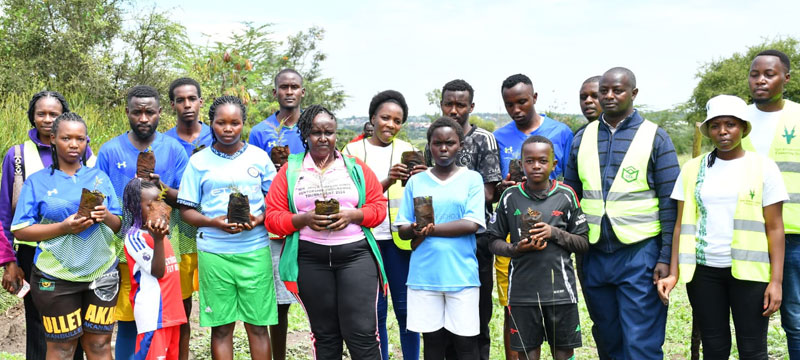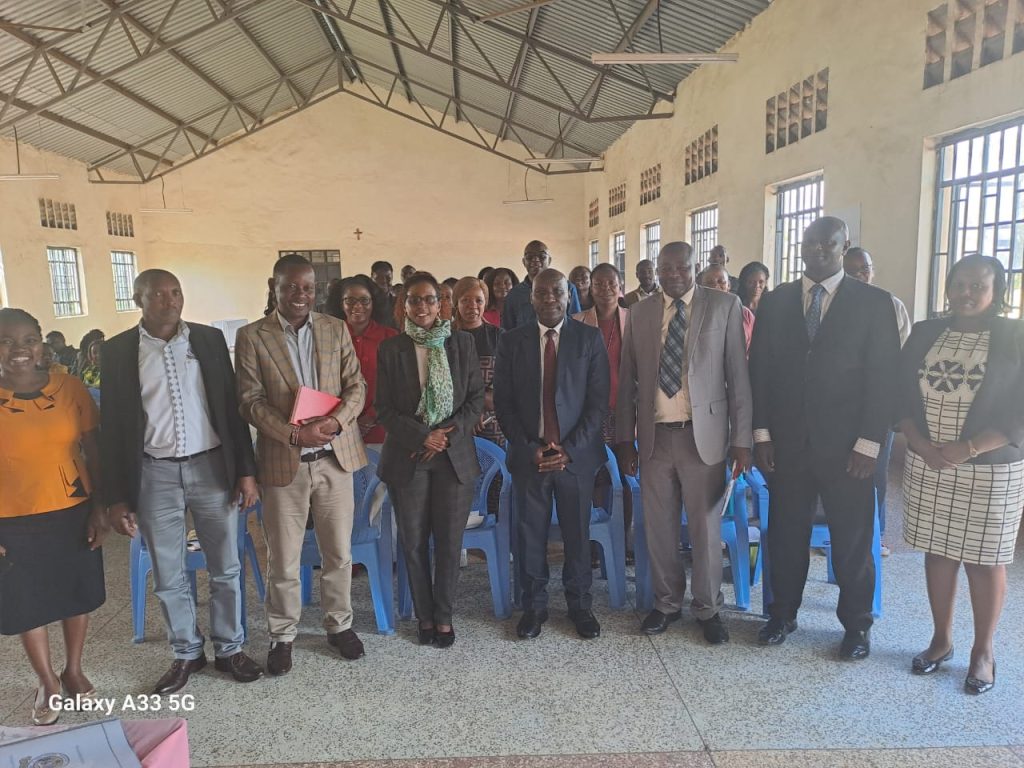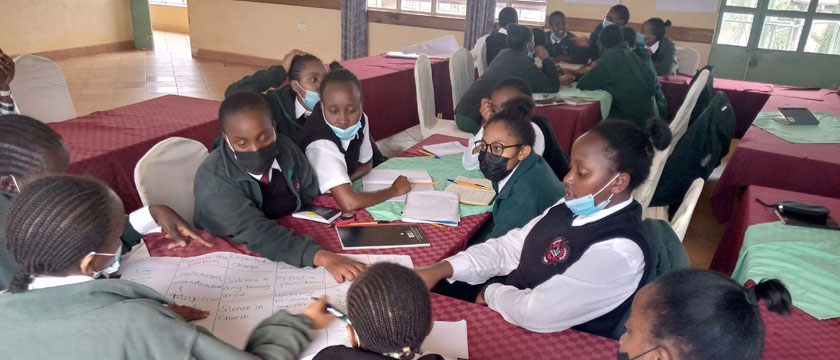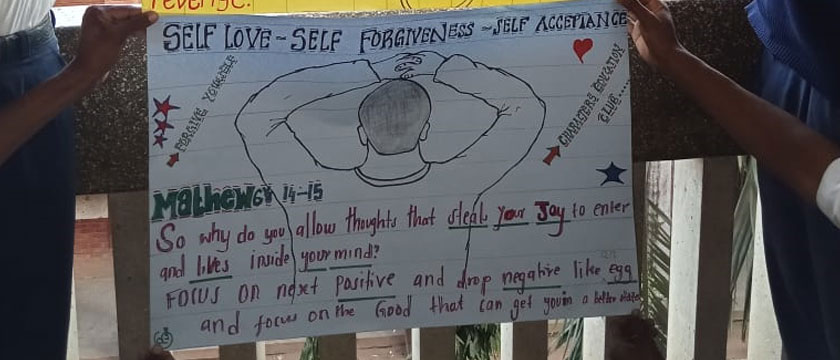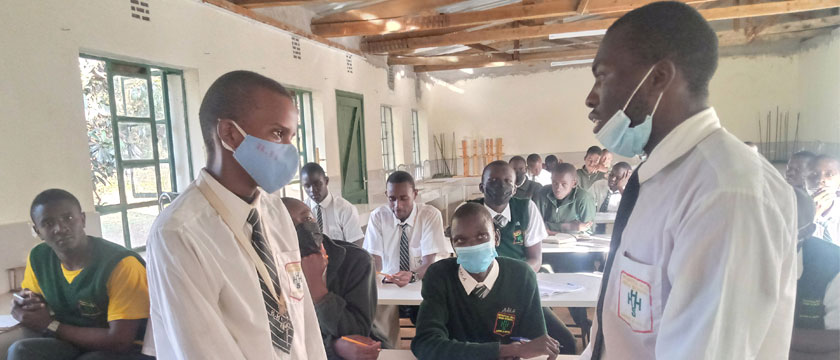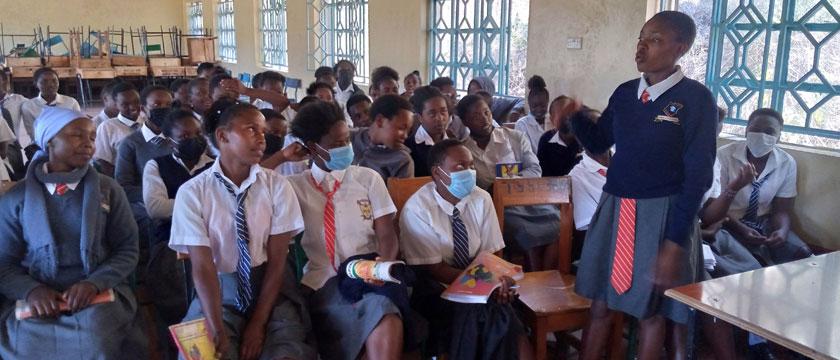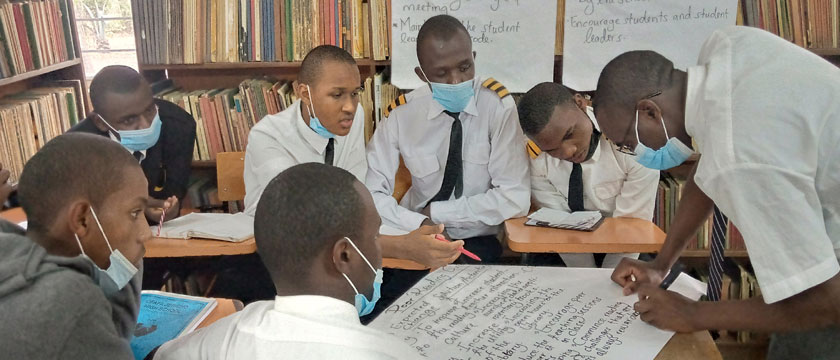The Centre Director for Character Education Program, Peter Kingori, facilitated a mentorship training for students’ peer mentors that was organized by the leadership of Kenya Secondary School Heads Association (KESSHA) in Kabete Sub-County. The event was hosted at PCEA Kanjeru Booth High School and brought together student peer mentors from over 12 secondary schools in the Sub-County.
As adolescents grow into caring and responsible citizens, they require significant support from caring adults and peers who act as good role models, peer counselors, and mentors. The value of a good mentor is immeasurable, as they help adolescents discover their life purpose, develop good character, nurture talents and abilities, and inspire academic achievement, among other positive outcomes.
In modern school settings, there is a clear need for stakeholder collaboration in educating for character and providing student mentorship to address the increasing rate and multifaceted issues affecting institutions. These issues include a poor reading culture, unhealthy boy-girl relationships, negative peer pressure, low student self-esteem, drug and substance abuse, and student engagement in crime and violence.
Peter’s presentation focused on introducing peer mentors in schools, addressing emerging issues in schools, understanding student behaviors, and fostering social-emotional learning skills within the school community. The discussion highlighted the importance of building positive relationships, discovering one’s noble purpose, inculcating values in the school community, and developing support systems that aid individual emotional growth.
The co-presenter, Lydiah Minayo, a certified counselor, shared insights on the characteristics of a good peer mentor, the roles of a peer mentor, the benefits of mentorship, and the skills needed to be an effective peer mentor. Throughout the sessions, student peer mentors were engaged in self-reflection activities, including moral dilemma discussions, group discussions, and partner chats. They were also encouraged to cultivate empathy, practice effective communication, be sincere and trustworthy, and share personal experiences that can positively influence their peers. The training concluded with heartfelt testimonials as peer mentors expressed their commitment to offering guidance to their peers on moral, social, academic, and emotional issues, while also contributing unique perspectives in peer interactions.

